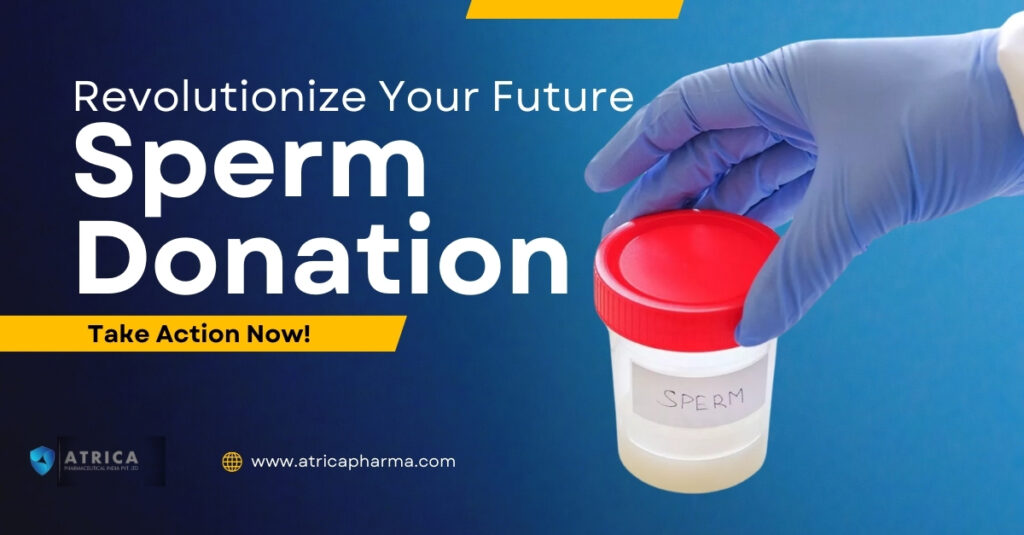
Sperm Donation – Revolutionize Your Future: Take Action Now!
Embarking on the journey of sperm donation isn’t merely a medical process; it’s an act of compassion and generosity that opens doors to hope and parenthood for countless individuals and couples worldwide. Picture this: a couple, longing to cradle their own bundle of joy, yet faced with the heart-wrenching reality of infertility. It’s a dream deferred, a longing unfulfilled, and often, a silent struggle carried in the depths of their hearts.
But amidst the shadows of despair, there shines a beacon of light: sperm donation. It’s the bridge that spans the gap between dreams and reality, offering a glimmer of hope where once there was only darkness. For those grappling with infertility, sperm donation represents the promise of new beginnings, the chance to nurture life and love in its purest form.
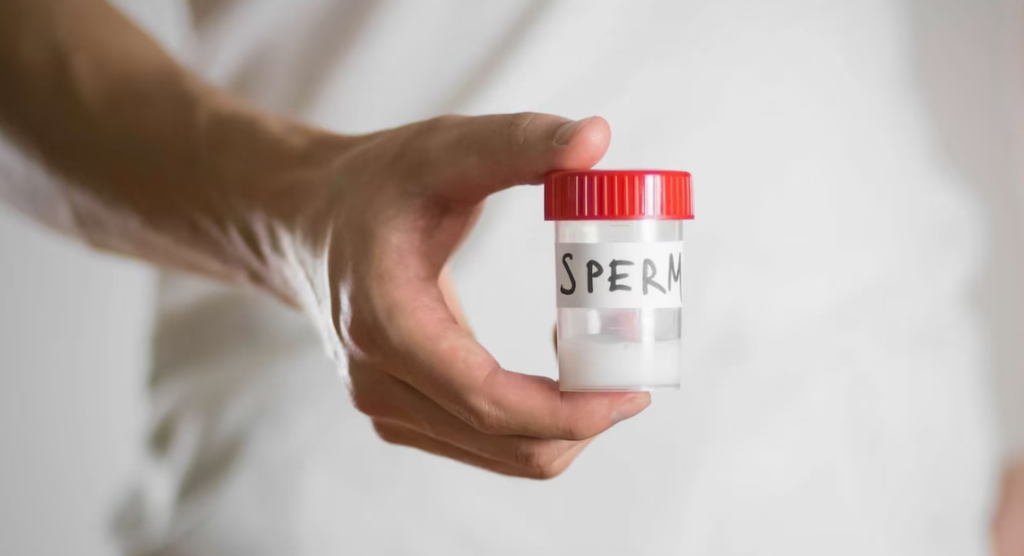
Beyond the clinical procedures and sterile environments lies a profound journey of human connection and empathy. It’s about one individual extending a helping hand to another, selflessly offering a piece of themselves to bring joy and fulfillment to someone else’s life. In essence, sperm donation embodies the essence of humanity: compassion, kindness, and the unwavering belief in the power of generosity to transform lives.
So, as we delve into the intricacies of sperm donation, let us remember the profound impact it has on the lives of those it touches. It’s not just about biological material; it’s about the bonds forged, the dreams realized, and the legacy of love that transcends generations. In every vial of donated sperm lies the potential to create miracles, to turn dreams into reality, and to usher in a future filled with hope and possibility.
Welcome to the world of sperm donation, where every contribution is a testament to the boundless capacity of the human heart to give and receive love in its purest form.
Understanding Sperm Health: Nurturing Life from Within
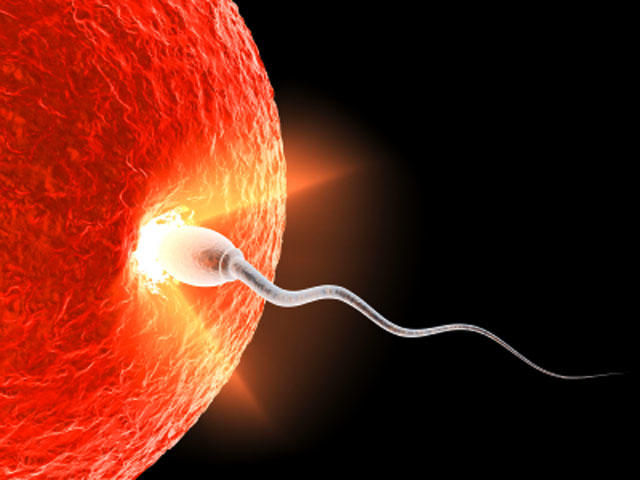
Factors Affecting Sperm Health:
Sperm health isn’t just about numbers on a lab report; it’s about the intricate dance of factors that shape the very essence of life. From the food we eat to the air we breathe, every aspect of our lifestyle plays a role in nurturing or compromising the health of our sperm. Picture a delicate ecosystem within the male body, where balance is key and harmony is essential for optimal fertility.
Consider the impact of diet and nutrition, where wholesome foods rich in vitamins and antioxidants lay the foundation for robust sperm production. Conversely, a diet laden with processed foods and excessive sugars can tip the scales towards infertility, disrupting hormonal balance and impairing sperm quality.
Then there’s the role of physical activity, where regular exercise not only boosts overall health but also enhances sperm motility and vitality. It’s a symphony of movement that invigorates the body and invigorates the soul, paving the way for a flourishing reproductive system.
But perhaps most importantly, we must acknowledge the influence of environmental toxins and pollutants, lurking unseen in the air we breathe and the water we drink. From endocrine-disrupting chemicals to heavy metals, these silent saboteurs pose a grave threat to sperm health, sabotaging fertility and casting a shadow over the hopes of aspiring parents.
Importance of Healthy Sperm for Donation:
Healthy sperm isn’t just a prerequisite for conception; it’s the very foundation upon which dreams of parenthood are built. Imagine the joy of a couple receiving the news of a successful pregnancy, knowing that it was made possible by the selfless act of a sperm donor. It’s a testament to the power of life, the resilience of the human spirit, and the boundless generosity that resides within us all.
For those considering sperm donation, the importance of healthy sperm cannot be overstated. It’s not just about meeting the minimum criteria for donation; it’s about going above and beyond to ensure that every contribution is a gift of life in its purest form. By prioritizing factors like diet, exercise, and environmental awareness, donors can maximize the impact of their generosity, offering hope and healing to those in need.
So, let us embrace the journey of sperm health with open hearts and open minds, recognizing the profound impact it has on the lives of countless individuals and families around the world. In every sperm cell lies the potential to create miracles, to ignite the spark of life, and to pave the way for a brighter, more hopeful future.
Common Concerns: Navigating Myths and Misconceptions
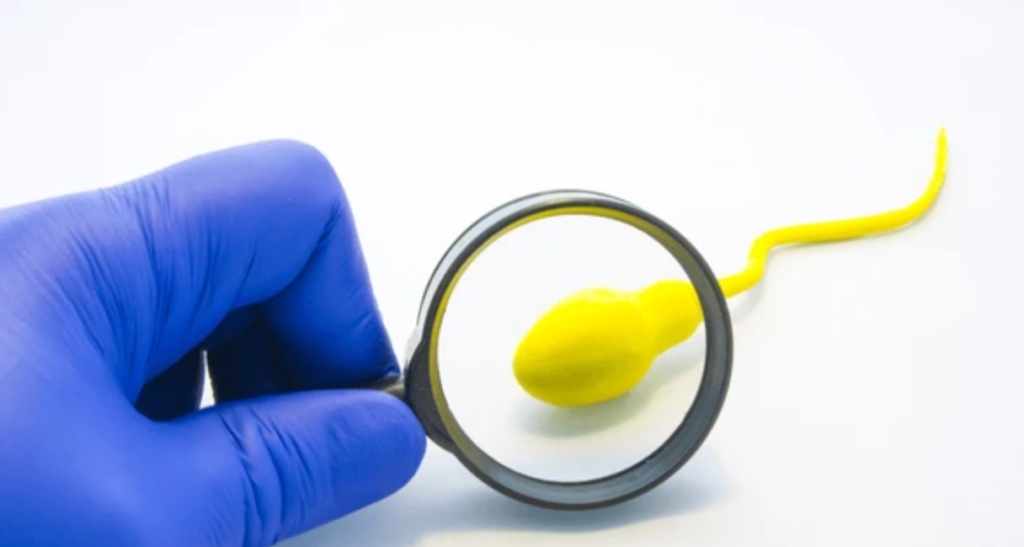
Addressing Myths and Misconceptions:
Sperm leakage and masturbation—two topics shrouded in stigma and misinformation, yet integral to the conversation surrounding male fertility. Let’s embark on a journey to separate fact from fiction, dispel myths, and empower individuals with knowledge and understanding.
Firstly, let’s address the notion of sperm leakage—a fear that haunts the minds of many, fueled by myths of lost potency and diminished virility. In reality, the occasional release of seminal fluid outside of sexual intercourse is a natural phenomenon, often occurring during nocturnal emissions or spontaneous arousal. It’s a bodily function as natural as breathing, and certainly nothing to be ashamed of or alarmed about.
Similarly, masturbation, often vilified and misunderstood, is a normal and healthy aspect of human sexuality. Contrary to popular belief, frequent masturbation does not deplete sperm count or diminish fertility. In fact, it serves as a means of self-exploration and stress relief, contributing to overall well-being and sexual satisfaction.
Effects on Sperm Quality and Quantity:
But what about the impact of these activities on sperm quality and quantity? Here’s where we delve into the science behind the myths, separating truth from speculation.
While it’s true that excessive masturbation may temporarily lower sperm count, the effect is typically minimal and reversible. The human body continuously produces sperm, replenishing reserves over time. Moreover, occasional ejaculation—whether through sexual intercourse or masturbation—can actually improve sperm quality by preventing stagnation and promoting the removal of older, less viable sperm.
However, it’s essential to maintain a balance. Prolonged periods of abstinence can lead to decreased sperm motility and quality, highlighting the importance of regular ejaculation for optimal reproductive health.
In essence, let’s embrace a nuanced understanding of sperm leakage and masturbation, free from judgment and stigma. By arming ourselves with accurate information and dispelling misconceptions, we can empower individuals to make informed choices about their sexual health and fertility journey.
Exploring Sperm Morphology: Unveiling the Blueprint of Life
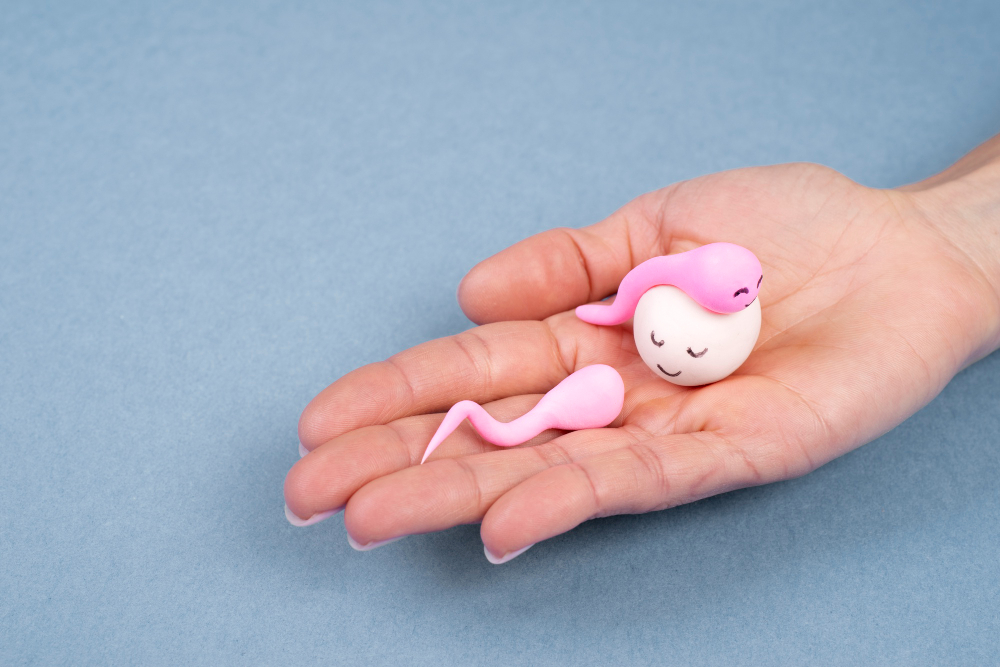
Definition and Significance:
Sperm morphology—a term that may sound clinical and detached, yet holds the key to unlocking the mysteries of fertility and conception. At its core, sperm morphology refers to the size, shape, and structure of sperm cells, each intricately designed to fulfill its sacred purpose: the creation of life.
Imagine each sperm cell as a tiny vessel of potential, carrying within it the genetic blueprint of future generations. From the curvature of its head to the length of its tail, every aspect of morphology plays a vital role in determining its ability to fertilize an egg and initiate the miracle of conception.
But beyond its physical attributes lies a deeper significance—a testament to the resilience and ingenuity of life itself. In the intricate dance of DNA replication and cellular division, sperm morphology serves as a silent witness to the beauty of creation, reminding us of the awe-inspiring complexity that underlies the miracle of birth.
Impact on Fertility and Donation Eligibility:
As we delve deeper into the realm of sperm morphology, it becomes evident that its impact extends far beyond the confines of a laboratory report. For individuals and couples struggling to conceive, the morphology of sperm cells can serve as both a beacon of hope and a source of frustration.
In the journey towards parenthood, every percentage point of normal sperm morphology holds immense significance, representing the difference between heartbreak and triumph. It’s a delicate balance between optimism and uncertainty, where each microscopic detail carries the weight of dreams yet to be realized.
Moreover, the significance of sperm morphology extends to the realm of donation eligibility. Donors with optimal morphology are in high demand, as their contributions have the potential to unlock doors to parenthood for those facing infertility. It’s a gift of life in its purest form—a chance to share in the joy of creation and leave a legacy of hope for generations to come.
In essence, let us embrace the intricacies of sperm morphology with reverence and awe, recognizing its profound impact on the tapestry of life. In every sperm cell lies the potential to shape destinies, bridge dreams, and weave together the fabric of humanity in all its beauty and complexity.
Debunking Myths: Shedding Light on Sperm Cramps
Causes and Misconceptions:
Sperm cramps—an enigmatic phenomenon that often elicits confusion and concern among men, yet remains shrouded in myths and misconceptions. Let’s embark on a journey to demystify this experience, uncover its underlying causes, and dispel the myths that surround it.
Firstly, it’s essential to understand that sperm cramps are typically harmless and transient, often occurring as a result of muscle contractions in the reproductive organs during or after ejaculation. However, misconceptions abound, with some attributing these sensations to more serious medical conditions or fears of fertility impairment.
In truth, sperm cramps are a natural physiological response, akin to the muscle spasms that occur in other parts of the body. They are not indicative of infertility or reproductive dysfunction but rather a normal aspect of male sexual anatomy and function.
Tips for Alleviating Discomfort:
While sperm cramps are generally harmless, they can nonetheless cause discomfort or inconvenience for some individuals. Fortunately, there are several strategies that can help alleviate these sensations and promote overall well-being.
One effective approach is the application of heat therapy to the lower abdomen, which can help relax tense muscles and soothe discomfort. Additionally, engaging in relaxation techniques such as deep breathing or meditation can help reduce stress and tension, easing the severity of cramping sensations.
Furthermore, gentle stretching exercises targeting the pelvic region can help alleviate muscle tightness and improve circulation, promoting greater comfort and mobility. By incorporating these simple yet effective practices into their daily routine, individuals experiencing sperm cramps can find relief and enhance their overall quality of life.
In essence, let us embrace a nuanced understanding of sperm cramps, free from fear and stigma. By shedding light on the true nature of this experience and providing practical tips for managing discomfort, we can empower individuals to navigate their sexual health journey with confidence and peace of mind.
Sperm Motility: Navigating the Path to Parenthood
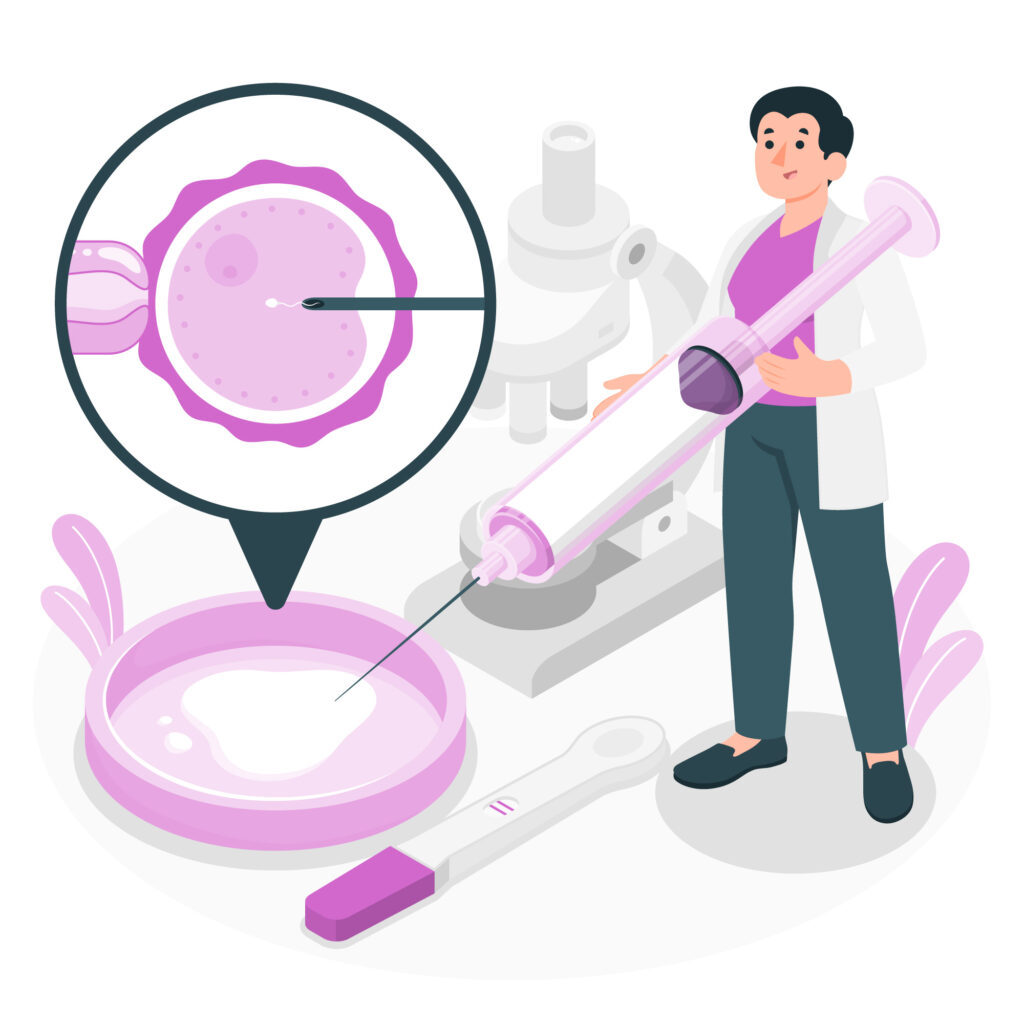
Definition and Importance:
Sperm motility—the silent symphony of movement that holds the key to successful conception and the realization of dreams. At its essence, sperm motility refers to the ability of sperm cells to navigate the intricate terrain of the female reproductive tract with precision and purpose. It’s a dance of life within, an intricate choreography of microscopic proportions that culminates in the miracle of new beginnings.
But beyond its scientific definition lies a deeper significance—a testament to the resilience and determination of life itself. In the quest for parenthood, sperm motility serves as a beacon of hope, a guiding light amidst the uncertainty and challenges of the fertility journey. It’s the spark of possibility, the flicker of potential, and the promise of a future filled with love and laughter.
Factors Influencing Motility:
As we delve deeper into the realm of sperm motility, it becomes evident that its vitality is influenced by a myriad of factors, both internal and external. From lifestyle choices to environmental exposures, each element plays a role in shaping the trajectory of sperm’s journey towards its ultimate destination.
Consider the impact of temperature regulation within the testes—a delicate balance that can be disrupted by excessive heat or prolonged exposure to environmental stressors. By maintaining optimal conditions for sperm production and maturation, individuals can enhance motility and increase the likelihood of successful fertilization.
Moreover, the presence of infections or inflammatory conditions can also impact sperm motility, highlighting the importance of maintaining overall health and well-being. By addressing underlying medical issues and adopting a proactive approach to reproductive health, individuals can optimize their chances of achieving conception and fulfilling their dreams of parenthood.
In essence, let us embrace the miracle of sperm motility with reverence and awe, recognizing its profound significance in the journey towards parenthood. In every movement of a sperm cell lies the promise of new beginnings, the potential for miracles, and the boundless possibilities of life itself.
Preparing for Sperm Donation: Cultivating the Seeds of Generosity
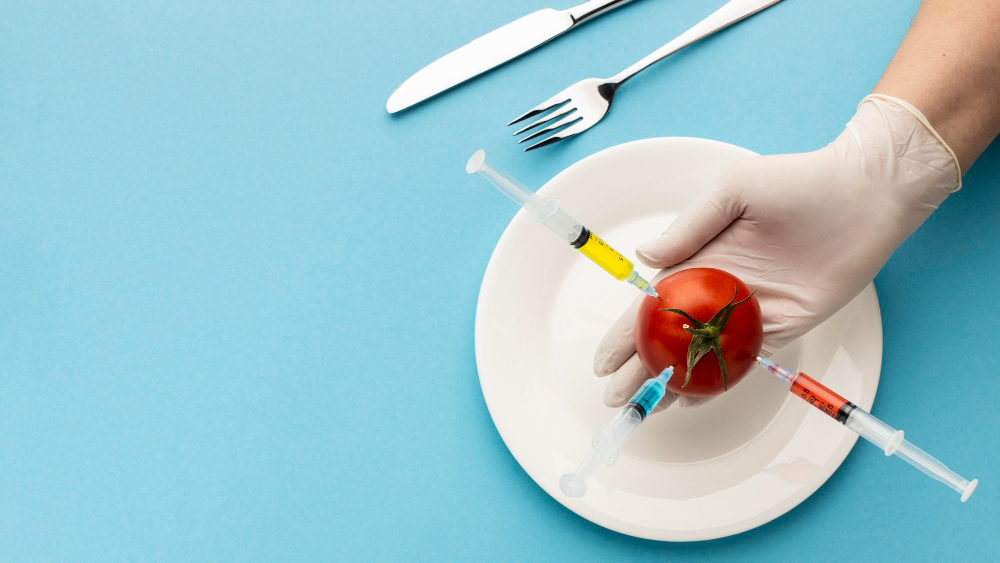
Lifestyle Changes for Optimal Sperm Health:
Preparing for sperm donation isn’t just about meeting the minimum requirements—it’s about cultivating a fertile environment within the body, where the seeds of life can thrive and flourish. It’s a journey of self-discovery and empowerment, where individuals take proactive steps to optimize their reproductive health and maximize the impact of their generosity.
Imagine the human body as a garden, each choice we make a seed planted in the soil of our well-being. From the foods we eat to the habits we cultivate, every aspect of our lifestyle plays a role in shaping the health and vitality of our sperm. By prioritizing factors like nutrition, exercise, and stress management, donors can create an environment conducive to robust sperm production and motility.
Consider the power of a balanced diet, rich in nutrients and antioxidants that nourish the body from within. Fruits, vegetables, whole grains, and lean proteins serve as the building blocks of life, fueling the cells and systems responsible for sperm production and maturation. By embracing a diet that honors the body’s needs, donors can lay the foundation for healthy sperm and contribute to the success of their donation efforts.
Moreover, the importance of regular exercise cannot be overstated. Physical activity not only promotes overall health and well-being but also enhances blood flow to the reproductive organs, supporting optimal sperm production and function. Whether it’s a brisk walk in nature or a rejuvenating yoga practice, finding joy in movement is essential to nurturing the seeds of life within.
Screening and Testing Procedures:
In addition to lifestyle changes, preparing for sperm donation involves undergoing thorough screening and testing procedures to ensure the safety and efficacy of the donation process. It’s a journey of trust and transparency, where donors collaborate with healthcare professionals to uphold the highest standards of ethical and medical practice.
During the screening process, donors undergo comprehensive medical evaluations, including assessments of overall health, sexual history, and genetic predispositions. These evaluations serve to identify any underlying health conditions or risk factors that may impact the quality or safety of donated sperm.
Furthermore, donors undergo semen analysis and fertility assessments to evaluate sperm quality, quantity, and motility. These tests provide valuable insights into the donor’s reproductive health and help determine their eligibility for donation.
In essence, preparing for sperm donation is a holistic journey that encompasses physical, emotional, and ethical considerations. By embracing lifestyle changes, undergoing thorough screening procedures, and collaborating with healthcare professionals, donors can make a meaningful contribution to the lives of others while nurturing their own well-being in the process.
Donation Process: A Journey of Compassion and Responsibility
Steps Involved in Sperm Donation:
The donation process is more than just a series of steps—it’s a journey of compassion, responsibility, and hope. From the initial decision to become a donor to the final contribution of life-giving sperm, each stage of the process is imbued with significance and purpose.
It begins with the decision to become a donor, a choice rooted in empathy and altruism. With this decision made, donors embark on a journey of preparation, undergoing thorough screening and testing procedures to ensure the safety and efficacy of their contributions.
Once cleared for donation, the process of sperm collection begins. Donors are provided with private and comfortable facilities where they can produce semen samples through masturbation. These samples are then carefully collected and processed in a laboratory setting, where they undergo evaluation and preparation for use in assisted reproductive technologies.
But the journey doesn’t end there. After donation, donors may choose to remain anonymous or participate in open donation programs, where they have the opportunity to connect with recipients and potentially learn about the outcomes of their contributions.
Legal and Ethical Considerations:
While the donation process is rooted in compassion and generosity, it’s essential to navigate it with integrity and respect for all parties involved. Legal and ethical considerations play a crucial role in ensuring the safety, privacy, and dignity of donors, recipients, and offspring.
Legal frameworks vary by jurisdiction, but common considerations include consent forms, confidentiality agreements, and guidelines for donor eligibility. Donors must fully understand their rights and responsibilities before consenting to donation, and clinics must adhere to strict protocols to protect the privacy and well-being of all parties.
Ethical considerations also come into play, particularly regarding issues of consent, anonymity, and the rights of offspring to access information about their biological origins. Donors are encouraged to reflect on their motivations for donation and consider the potential implications of their actions on future generations.
In essence, the donation process is a sacred journey—one that bridges the gap between dreams and reality, hope and fulfillment. By navigating it with compassion, responsibility, and integrity, donors can make a profound and lasting impact on the lives of others while honoring the dignity and rights of all involved.
Benefits of Sperm Donation: Bringing Dreams to Life
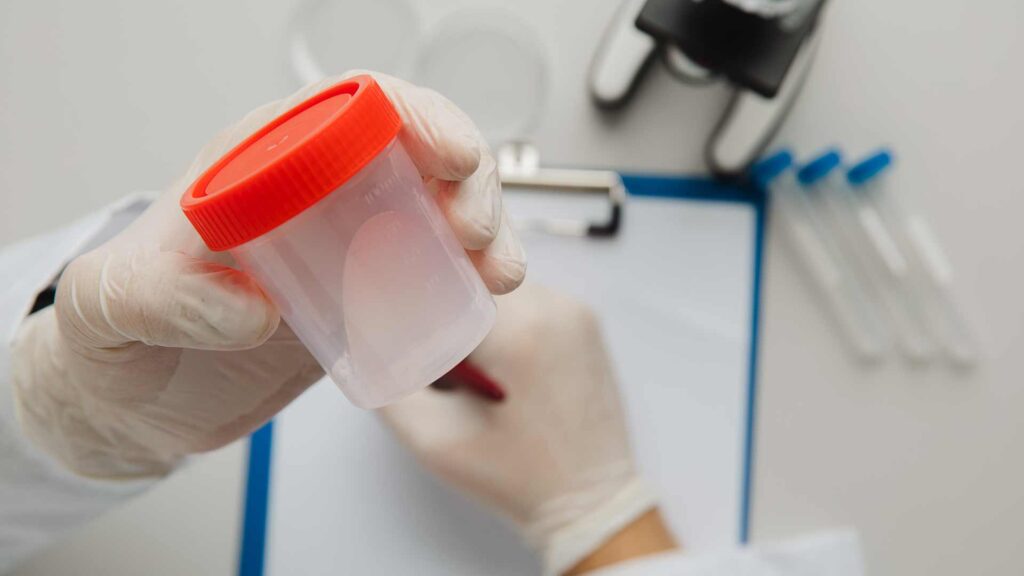
Helping Individuals and Couples Conceive:
The benefits of sperm donation extend far beyond the confines of the donation room—they reach into the hearts and homes of individuals and couples longing to conceive. For those struggling with infertility, sperm donation offers a ray of hope, a chance to turn dreams of parenthood into reality.
Imagine the joy and gratitude that wash over a couple when they receive the news of a successful pregnancy, knowing that it was made possible by the selfless act of a sperm donor. It’s a moment of profound significance, a testament to the power of generosity and the resilience of the human spirit.
But the impact of sperm donation goes beyond conception—it’s about more than just bringing new life into the world. It’s about providing hope to those who have faced disappointment and despair, offering a lifeline to individuals and couples whose journey to parenthood has been marked by struggle and heartache.
Financial Compensation and Altruistic Motives:
While the altruistic motives behind sperm donation are often the driving force for donors, it’s also important to acknowledge the practical benefits that come with the territory. Financial compensation serves as a means of acknowledging donors’ time, effort, and commitment to the donation process, allowing them to support themselves and their families while making a meaningful contribution to the lives of others.
But beyond financial compensation lies a deeper sense of fulfillment—a knowing that one’s actions have made a tangible difference in the lives of individuals and families in need. It’s a feeling of pride and satisfaction that transcends monetary rewards, rooted in the knowledge that one has played a part in bringing joy and fulfillment to others.
In essence, the benefits of sperm donation are manifold—they encompass both the tangible and intangible rewards of generosity and compassion. By offering hope to those in need, donors not only fulfill the dreams of others but also enrich their own lives in the process. It’s a journey of giving and receiving, of nurturing the seeds of parenthood and fostering the bonds of love that unite us all.
Potential Risks and Side Effects: Navigating the Journey with Care
Short-Term Discomfort and Risks of Infection:
Embarking on the path of sperm donation may come with short-term discomforts and the risk of infection, yet it’s a journey worth treading for those who seek to make a difference. While the act of donation itself is relatively straightforward, involving the collection and processing of semen samples, donors may experience mild discomfort or soreness in the immediate aftermath.
Moreover, there exists a small risk of infection associated with the donation process, particularly if proper hygiene protocols are not followed. However, with diligent adherence to sterile procedures and regular screenings for sexually transmitted infections, the likelihood of infection is minimal.
It’s essential for donors to communicate any concerns or symptoms to healthcare professionals promptly, ensuring prompt treatment and resolution of any issues that may arise. By prioritizing safety and well-being, donors can navigate the journey of sperm donation with confidence and peace of mind.
Long-Term Implications and Emotional Considerations:
Beyond the physical risks, it’s crucial to consider the long-term implications and emotional considerations associated with sperm donation. While the act of donation itself may be fleeting, its impact can reverberate through the lives of donors and recipients for years to come.
For some donors, the decision to donate sperm may evoke a range of emotions, from pride and satisfaction to introspection and contemplation. It’s a deeply personal choice—one that requires self-awareness and a willingness to confront the complexities of altruism and generosity.
Moreover, donors may grapple with questions of identity and connection, particularly if they choose to participate in open donation programs where offspring have the opportunity to learn about their biological origins. While the decision to remain anonymous or engage with offspring is deeply personal, it’s essential for donors to consider the potential implications and seek support if needed.
In essence, the journey of sperm donation is not without its challenges and considerations, yet it offers the opportunity to make a meaningful impact on the lives of others. By approaching the process with care, compassion, and self-awareness, donors can navigate the path with grace and integrity, leaving a legacy of generosity and hope in their wake.
Support and Counseling Services: Nurturing the Hearts and Minds of Donors
Importance of Psychological Support:
The journey of sperm donation is not merely a physical act—it’s a profound emotional and psychological experience that warrants careful attention and support. In the midst of the altruism and generosity that define the donation process, donors may encounter a range of emotions, from pride and fulfillment to uncertainty and introspection.
That’s where psychological support comes into play. Just as a garden requires tender care and nurturing to flourish, so too do the hearts and minds of donors. Counseling services provide a safe and supportive space for donors to explore their thoughts, feelings, and concerns, offering guidance and perspective as they navigate the complexities of donation.
Moreover, psychological support serves to validate donors’ experiences and acknowledge the significance of their contributions. It’s a reminder that their actions matter, that their generosity has the power to transform lives and bring hope to those in need. By tending to the inner garden of well-being, donors can cultivate resilience and strength, empowering them to continue their journey with confidence and purpose.
Resources Available for Donors:
Fortunately, donors have access to a wealth of resources designed to support them throughout their journey. From counseling services to online forums and support groups, there are myriad opportunities for donors to connect with others who share similar experiences and concerns.
Many fertility clinics offer counseling services as part of their donation programs, providing donors with access to trained professionals who specialize in reproductive health and emotional well-being. These counselors can offer guidance, support, and practical strategies for coping with the challenges and uncertainties of donation.
Additionally, online forums and support groups provide a virtual space for donors to connect with others from around the world, sharing their stories, asking questions, and offering mutual support and encouragement. These communities serve as a source of solidarity and understanding, reminding donors that they are not alone on their journey.
In essence, support and counseling services are essential components of the sperm donation process, providing donors with the guidance, validation, and connection they need to navigate their journey with grace and resilience. By embracing these resources, donors can cultivate a sense of empowerment and belonging, knowing that they are part of a community that values and supports their contributions.
Future of Sperm Donation: Pioneering Paths Towards Tomorrow
Advancements in Reproductive Technology:
The future of sperm donation holds promise and potential, fueled by ongoing advancements in reproductive technology that continue to push the boundaries of what’s possible. From innovative treatments to cutting-edge procedures, the landscape of assisted reproduction is evolving at a rapid pace, offering new hope to individuals and couples facing infertility.
Imagine a world where infertility is no longer a barrier to parenthood—a world where groundbreaking techniques like in vitro fertilization (IVF), intracytoplasmic sperm injection (ICSI), and sperm retrieval procedures offer a lifeline to those in need. These technologies not only expand the options available to aspiring parents but also pave the way for greater inclusivity and accessibility within the field of assisted reproduction.
Moreover, emerging technologies such as sperm sorting and genetic screening hold the promise of further enhancing the efficacy and safety of sperm donation. By leveraging the power of science and innovation, researchers and clinicians are working tirelessly to improve outcomes and optimize the donor-conception process for individuals and families around the globe.
Ethical Considerations and Societal Attitudes:
As we peer into the future of sperm donation, it’s essential to consider the ethical implications and societal attitudes that shape the landscape of assisted reproduction. Questions of consent, autonomy, and the rights of donor-conceived individuals loom large, prompting us to confront the complexities of parenthood, identity, and family.
Ethical considerations extend beyond the donor-conception process itself, encompassing issues such as donor anonymity, disclosure, and the rights of offspring to access information about their biological origins. As attitudes towards assisted reproduction continue to evolve, there is growing recognition of the importance of transparency, honesty, and respect for all parties involved.
Moreover, societal attitudes towards sperm donation are shifting, driven by increasing awareness and acceptance of diverse family structures and paths to parenthood. As stigma and misconceptions surrounding infertility and assisted reproduction fade, donors and recipients alike are finding greater acceptance and support within their communities.
In essence, the future of sperm donation is a tapestry woven from the threads of science, ethics, and humanity—a journey of innovation, compassion, and hope. By embracing the opportunities and challenges that lie ahead with courage and conviction, we can pave the way for a future where every individual has the opportunity to create the family they envision, regardless of the path they choose.
Frequently Asked Questions (FAQs) About Sperm Donation
What is sperm donation, and how does it work?
Sperm donation is a process in which a man donates his sperm to be used for assisted reproduction. This donated sperm can then be used by individuals or couples who are unable to conceive naturally. The process typically involves the donor providing a semen sample, which is then processed and stored for later use in procedures such as in vitro fertilization (IVF) or intrauterine insemination (IUI).
Who can become a sperm donor?
The eligibility criteria for sperm donation vary by country and fertility clinic, but generally, donors must be between the ages of 18 and 40, in good health, and free from certain medical conditions or genetic disorders. Additionally, donors are typically required to undergo screening tests for infectious diseases and genetic abnormalities before being accepted into a donation program.
Is sperm donation anonymous?
Whether sperm donation is anonymous or not depends on the policies of the fertility clinic and the preferences of the donor and recipient. In some cases, donors may choose to remain anonymous, while in others, they may be open to the possibility of being contacted by any offspring resulting from their donation once they reach a certain age.
What are the legal and ethical considerations of sperm donation?
Sperm donation raises various legal and ethical considerations, particularly regarding issues of consent, anonymity, and the rights of donor-conceived individuals. It’s essential for both donors and recipients to fully understand their rights and responsibilities before proceeding with donation, and to adhere to relevant laws and regulations governing assisted reproduction.
Are there any risks or side effects associated with sperm donation?
While sperm donation is generally considered safe, there may be some short-term discomforts or risks of infection associated with the process. Donors may experience mild discomfort or soreness after providing a semen sample, and there is a small risk of infection if proper hygiene protocols are not followed. However, these risks are typically minimal and can be mitigated with appropriate precautions.
Can sperm donors choose the recipients of their donation?
In most cases, sperm donors do not have the opportunity to choose the recipients of their donation. Instead, recipients typically select donors based on specific criteria such as physical characteristics, medical history, and personal preferences. However, some donation programs may allow donors to provide input on certain preferences or criteria for potential recipients.
How often can someone donate sperm?
The frequency of sperm donation depends on individual factors such as sperm quality, overall health, and the policies of the donation program. In general, donors are typically allowed to donate sperm multiple times over a period of several months, with sufficient time allowed between donations to replenish sperm reserves and ensure optimal quality.
Are sperm donors compensated for their donation?
Sperm donation is often accompanied by financial compensation to compensate donors for their time, effort, and commitment to the donation process. However, the amount of compensation can vary widely depending on factors such as the location, the fertility clinic, and the specific requirements of the donation program. It’s essential for donors to fully understand the terms of compensation before proceeding with donation.
Conclusion: Embracing the Journey of Generosity
As we reach the conclusion of our exploration into the world of sperm donation, let’s take a moment to recap the key points we’ve uncovered along the way. From understanding the importance of sperm health to navigating the complexities of the donation process, we’ve delved into the intricacies of this deeply meaningful journey.
We’ve explored the factors that influence sperm health, from lifestyle choices to environmental exposures, recognizing the profound impact they have on fertility and donation eligibility. We’ve debunked myths and misconceptions surrounding sperm leakage, masturbation, and sperm cramps, empowering individuals with accurate information and dispelling fears.
Moreover, we’ve shed light on the significance of sperm morphology and motility, recognizing their pivotal role in successful conception and donation. We’ve examined the ethical considerations and societal attitudes that shape the landscape of assisted reproduction, urging us to navigate the path forward with compassion, integrity, and respect.
Encouragement for Potential Donors:
To those considering sperm donation, I offer words of encouragement and gratitude. Your willingness to embark on this journey of generosity speaks volumes about the depth of your compassion and the generosity of your spirit. As you contemplate the impact of your actions, remember the profound difference you have the power to make in the lives of others.
Know that your contributions matter, that your generosity has the power to bring joy and fulfillment to individuals and couples longing to conceive. Embrace the opportunity to be a beacon of hope in the lives of those facing infertility, knowing that your kindness has the potential to change lives and create families.
Above all, trust in the goodness of your heart and the purity of your intentions. As you navigate the complexities of the donation process, remember that you are not alone. Support and resources are available to guide you every step of the way, ensuring that your journey is one of empowerment, fulfillment, and profound impact.
In closing, I extend my deepest gratitude to all donors for their selflessness, compassion, and dedication to the journey of sperm donation. May your generosity continue to illuminate the path for others, paving the way for a future filled with hope, possibility, and boundless love.